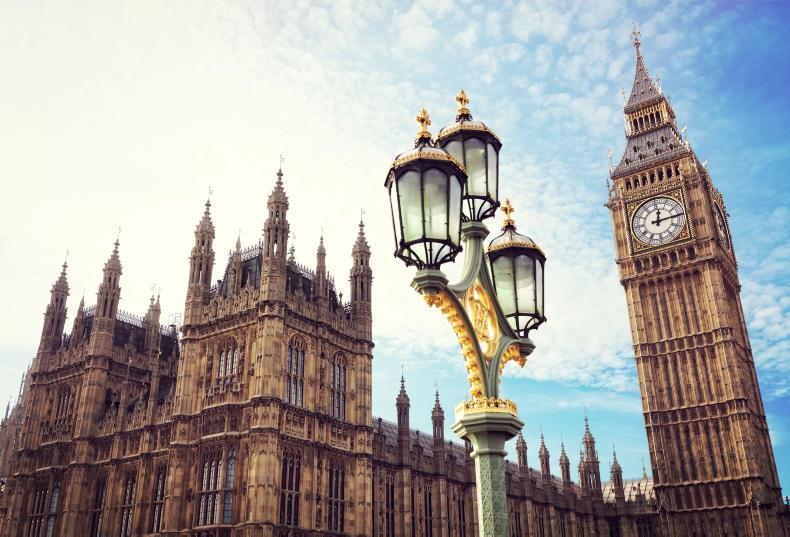A report published by the House of Commons NI Affairs Committee has urged the Northern Ireland (NI) Department for the Economy (DfE) to revisit the changes made from 1 April 2019 to Renewable Heat Incentive (RHI) tariffs.
The cost-cutting legislation, which was rushed through Westminster after one day of debate on 6 March 2019, brought a dramatic reduction in payments made under the scheme to participants in NI.
Most claimants had originally signed up to RHI between 2012 and 2015 for what they expected to be 20 years.
Changes
Justifying the 2019 changes, DfE argued that it effectively meant the overall RHI scheme would deliver a maximum 12% rate of return to participants, as set out in EU state aid rules.
However, in response, the NI Affairs Committee has described the new tariff regime as “a raw deal” for RHI claimants in NI.
The committee suggested that the new NI tariffs had been set too low and could mean participants in NI receive thousands, if not hundreds of thousands of pounds, less than RHI claimants in Britain, and also significantly less than claimants in the new scheme in the Republic of Ireland (ROI).
Revisit NI tariff
As a result, it wants DfE to revisit the NI tariff and compare the costs and assumptions made against those in Britain or ROI.
“The Department should report back to the committee in response to this report any evidence in relation to the above points,” notes the report.
The report is also critical of the legislative process that saw the new tariff rates introduced through Westminster during March 2019.
“It is evident that rushing NI-related legislation through parliament has become the norm. This is unacceptable,” states the report.
In the end, the legislation made it through the House of Lords after the government committed to setting up a unit within DfE to examine cases of RHI claimants that have experienced hardship due to cuts.
Buy-out
The changes to the scheme made in April 2019 also included a voluntary buy-out, calculated to provide an amount equivalent to the 12% return, minus the amount of RHI payments already received.
In effect, most boiler owners would get nothing under this buy-out mechanism.
However, the NI Affairs Committee report recommends that there should not be a one-size-fits-all calculation and that buyout must be calculated on an individual basis.
It also wants the independent panel overseeing a new hardship unit to review any disputed cases.
“We further recommend that in response to this report, the Department set out, specifically, additional ways in which the hardship unit will assist those assessed as suffering hardship,” states the report.
Read more
RHI claimants facing big cut to tariffs
RHI claimants sceptical of hardship unit
Moy Park expects switch to gas heating
A report published by the House of Commons NI Affairs Committee has urged the Northern Ireland (NI) Department for the Economy (DfE) to revisit the changes made from 1 April 2019 to Renewable Heat Incentive (RHI) tariffs.
The cost-cutting legislation, which was rushed through Westminster after one day of debate on 6 March 2019, brought a dramatic reduction in payments made under the scheme to participants in NI.
Most claimants had originally signed up to RHI between 2012 and 2015 for what they expected to be 20 years.
Changes
Justifying the 2019 changes, DfE argued that it effectively meant the overall RHI scheme would deliver a maximum 12% rate of return to participants, as set out in EU state aid rules.
However, in response, the NI Affairs Committee has described the new tariff regime as “a raw deal” for RHI claimants in NI.
The committee suggested that the new NI tariffs had been set too low and could mean participants in NI receive thousands, if not hundreds of thousands of pounds, less than RHI claimants in Britain, and also significantly less than claimants in the new scheme in the Republic of Ireland (ROI).
Revisit NI tariff
As a result, it wants DfE to revisit the NI tariff and compare the costs and assumptions made against those in Britain or ROI.
“The Department should report back to the committee in response to this report any evidence in relation to the above points,” notes the report.
The report is also critical of the legislative process that saw the new tariff rates introduced through Westminster during March 2019.
“It is evident that rushing NI-related legislation through parliament has become the norm. This is unacceptable,” states the report.
In the end, the legislation made it through the House of Lords after the government committed to setting up a unit within DfE to examine cases of RHI claimants that have experienced hardship due to cuts.
Buy-out
The changes to the scheme made in April 2019 also included a voluntary buy-out, calculated to provide an amount equivalent to the 12% return, minus the amount of RHI payments already received.
In effect, most boiler owners would get nothing under this buy-out mechanism.
However, the NI Affairs Committee report recommends that there should not be a one-size-fits-all calculation and that buyout must be calculated on an individual basis.
It also wants the independent panel overseeing a new hardship unit to review any disputed cases.
“We further recommend that in response to this report, the Department set out, specifically, additional ways in which the hardship unit will assist those assessed as suffering hardship,” states the report.
Read more
RHI claimants facing big cut to tariffs
RHI claimants sceptical of hardship unit
Moy Park expects switch to gas heating






 This is a subscriber-only article
This is a subscriber-only article










SHARING OPTIONS: